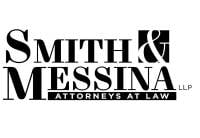Accrued debt is an ongoing problem in New York and across the United States. In recent years, given the ongoing challenges people have faced, that has included medical expenses combined with diminished income or loss of work entirely. However, for many years, credit cards have been a frequent source of overwhelming debt.
People might use their credit cards to get from one paycheck to the next. Before they know it, they have a high balance. When factoring in the interest rates and their tight financial situation, the principal can be hard to reduce and they find they are spinning their wheels. Debt snowballs as they continue to use their cards to make ends meet and they can no longer even pay the monthly minimum. While bankruptcy might seem like something they want to avoid, it is important to know its benefit, especially with getting credit card debt discharged.
What should I know about the bankruptcy discharge?
When a person files for personal bankruptcy – whether it is Chapter 7 or Chapter 13 – the objective is to eliminate as much debt as possible while retaining certain properties. Once the discharge is granted, the debtor is no longer responsible for it. In addition, filing for bankruptcy will put a stop to the creditors and debt collectors calling, sending letters, sending emails and using other methods of contact to try and receive payment.
Credit cards are generally unsecured debt, so a discharge, when granted, will clear them. The type of bankruptcy a person files will impact the timing for when the discharge occurs. Chapter 7 is a liquidation bankruptcy where people will surrender certain properties to be sold with the proceeds going to the creditor to cover at least some of what is owed. Often, people who file for Chapter 7 do not own a home, a newer automobile or items of substantial value, so they do not need to surrender property. The discharge for Chapter 7 happens relatively quickly within around four months after filing.
Chapter 13 is a wage earner’s plan that is comparable to a consolidation loan. The debtor will make payments each month to a trustee who will in turn distribute them to various creditors. It lasts for three or five years. This is used by people who want to retain a home, get current on their mortgage and keep other properties they would otherwise lose in a Chapter 7. In general, the discharge comes about four years after filing the petition.
There are some instances where the creditors will object to a discharge, but it is often automatic. Some behaviors might be questioned as the case moves forward such as a person making a series of costly purchases immediately before filing. The discharge can also be revoked if the trustee finds that it was obtained fraudulently. Creditors cannot try to collect on a discharged debt.
Professional help can be essential
It is natural for people with massive credit card debt to feel as if they are boxed in. They are not able to make the payments for any more than the minimum – if that – and they are reluctant to file for bankruptcy for fear of the negative implications surrounding it. It is important to know that bankruptcy is a perfectly legal strategy to get debts discharged. It is often the wisest option to restart a financial life, get on stronger ground and move forward free of the worry of credit card payments.
For assistance, it is important to have knowledgeable, experienced, caring and communicative help to walk a person through the entire process. This can explain what it entails, show how it can help, determine if it is the best option and give guidance on rebuilding credit after the discharge is granted. Debt can happen to anyone regardless of age, education and employment. Having experienced guidance is imperative.

